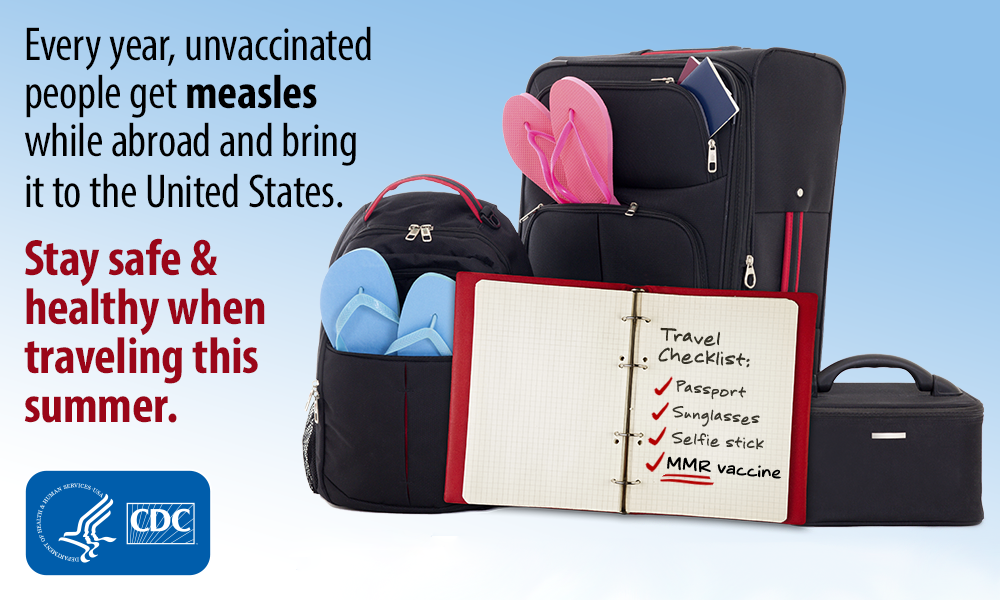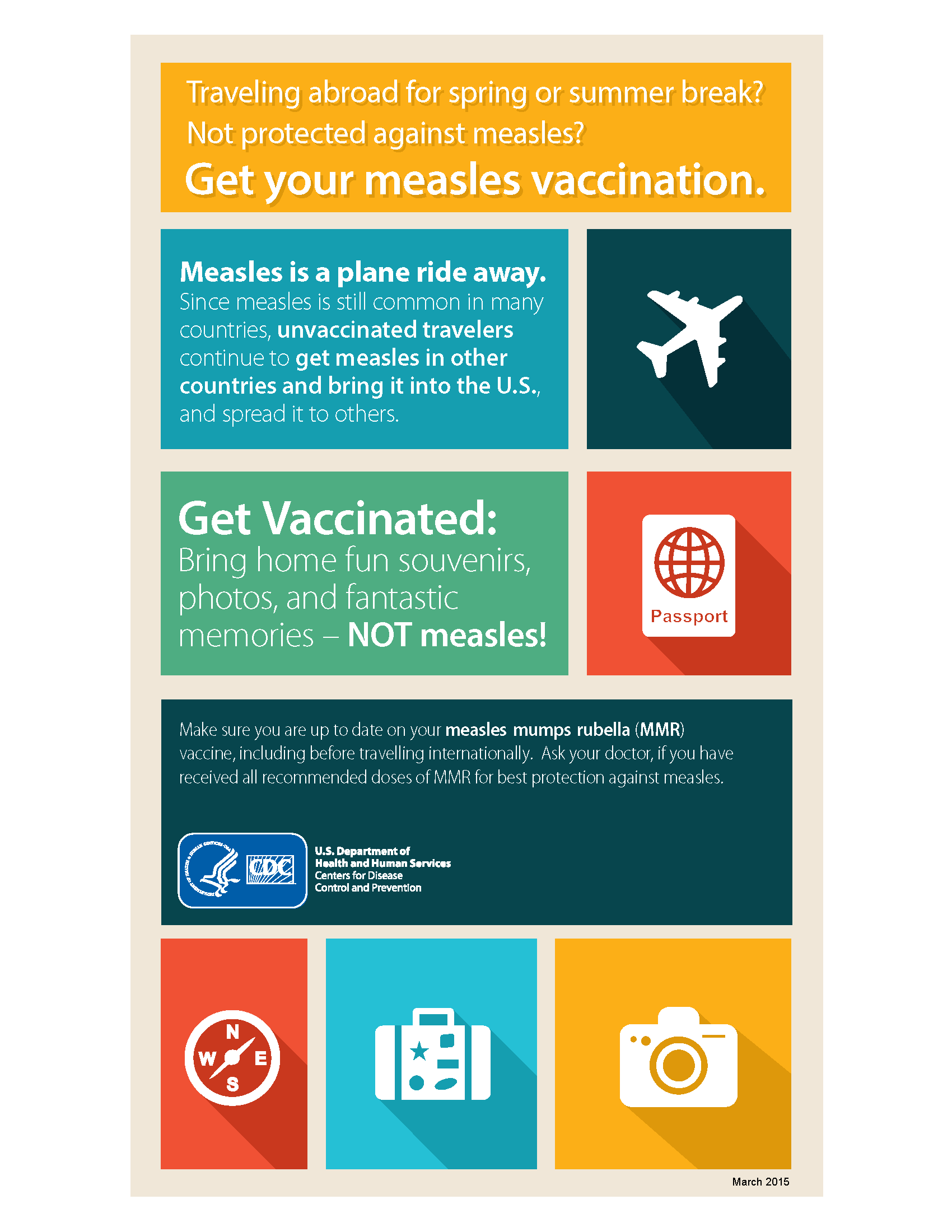Healthy New Jersey
Travel Planning
Travel Planning
Measles is still common in many countries. Before traveling internationally, make sure you're protected: check your vaccination status, get vaccinated if needed, and take steps to stay safe. Unvaccinated travelers can catch measles abroad and bring it home, causing outbreaks.
Key Takeaways:
- Measles cases in the United States often start with unvaccinated international travelers.
- Infants 6–11 months need 1 dose of MMR before travel; everyone 12 months and older without immunity should get 2 doses, with the last dose at least 2 weeks before departure.
- Two doses of MMR vaccine provide 97% protection against measles.
Before International Travel
Check your destination and CDC's global travel notices before you go.
Measles remains common in many parts of the world. The best way to protect yourself and others is to get vaccinated with the measles, mumps, and rubella (MMR) vaccine.
Two doses of MMR provide 97% protection against measles. You should be fully vaccinated at least two weeks before traveling. If your trip is sooner and you're not protected, get a dose as soon as possible—it can still help. The MMR vaccine protects against measles, mumps, and rubella.
Anyone traveling internationally—for work, vacation, study abroad, or visiting family—should be vaccinated.
Who Needs the MMR Vaccine Before Travel
Infants 6-11 months:
- Get one early dose of MMR before travel (this dose does not count toward the routine two-dose series).
- Follow the recommended schedule later:
- One dose at 12-15 months
- One dose at 4-6 years
Children Over 12 Months Old
- Get two doses of MMR:
- First dose immediately
- Second dose at least 28 days later
Teens and Adults Without Evidence of Immunity*
- Get two doses of MMR:
- First dose immediately
- Second dose at least 28 days later
*Evidence of immunity includes one of the following:
- Written documentation of adequate vaccination
- Laboratory evidence of immunity
- Laboratory confirmation of measles
- Birth before 1957 (except health care workers)
Check your destination and CDC's global travel notices before you go.
Measles remains common in many parts of the world. The best way to protect yourself and others is to get vaccinated with the measles, mumps, and rubella (MMR) vaccine.
Two doses of MMR provide 97% protection against measles. You should be fully vaccinated at least two weeks before traveling. If your trip is sooner and you're not protected, get a dose as soon as possible—it can still help. The MMR vaccine protects against measles, mumps, and rubella.
Anyone traveling internationally—for work, vacation, study abroad, or visiting family—should be vaccinated.
Who Needs the MMR Vaccine Before Travel
- Get one early dose of MMR before travel (this dose does not count toward the routine two-dose series).
- Follow the recommended schedule later:
- One dose at 12-15 months
- One dose at 4-6 years
- Get two doses of MMR:
- First dose immediately
- Second dose at least 28 days later
- Get two doses of MMR:
- First dose immediately
- Second dose at least 28 days later
*Evidence of immunity includes one of the following:
- Written documentation of adequate vaccination
- Laboratory evidence of immunity
- Laboratory confirmation of measles
- Birth before 1957 (except health care workers)
After International Travel
Watch your health for three weeks after you return. Measles is highly contagious and can spread to others through coughing and sneezing.
Call your health care provider immediately if:
You or your child get sick with a rash and fever. Tell your doctor you have traveled abroad, and whether you have received MMR vaccine.
 Official Site of The State of New Jersey
Official Site of The State of New Jersey

